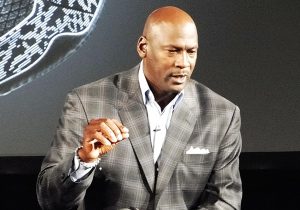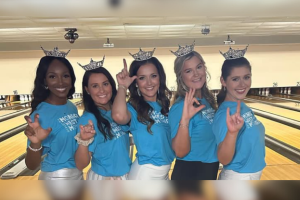Transitioning to college sports
November 13, 2018
Almost six percent of high school athletes compete at a National Collegiate Athletic Association school, according to the NCAA and face the next level in their athletic career.
“So far, my transition into college has been a really good one,” said Sydney Rivers, a freshman forward on the women’s basketball team. “I have been really enjoying my classes and being a part of the team who pushes me to give my best on and off the court. I definitely think that being part of the women’s basketball team has helped me to stay on track and not get overwhelmed with the transition from high school to college.”
Lindsey Rizzo, a freshman infielder on the softball team, compared high school athletics to her college experience.
“In high school, it was much more laid-back,” said Rizzo. “We got to play around, but in college, it’s totally different. In college, we have a lot more things to do like weights, meetings, practice, study hall. Both in high school and college, we do weights, but college weights, it’s a lot more intense than high school.”
Kyla Williams, a senior forward on the women’s basketball team, explained how college basketball demands more than high school such as making holiday sacrifices.
“College athletics compared to high school athletics are two different worlds,” said Williams. “High school athletics are not as fast nor as demanding. College athletics, like I said before, is a business. As an athlete, it is your job to make meetings, practices, weights, community service, etc. It is no longer a choice, especially when you are on scholarship. It is tougher altogether but all in all a great experience.”
According to Williams, her biggest challenge as a freshman student-athlete was the speed of the game.
Williams said, “As a freshman in college, a lot of expectations were placed on me to be better, and I found it hard to manage a life, school and basketball, which at many times seemed to be at the top of that list. Of course, as time went on, it got easier to manage everything, and I had my teammates to help with that because they were battling with the same things.”
Before experiencing the college transition, student-athletes interact with recruiters. Karlee Kraft, a freshman pitcher and utility player on the university softball team, shared her experience with recruitment.
Kraft said, “In high school, dealing with recruiters was really frustrating because there are so many amazing softball players out there, so it was hard to be confident about getting recruited, but the difficulty of getting recruited definitely made me work harder.”
Rivers described her communication with recruiters as “an extremely exciting privilege.”
“I always enjoyed talking to coaches and hearing about different programs and what they were about,” said Rivers. “I especially enjoyed the recruitment process with Southeastern because they were so family oriented, which definitely continues to show through everything we do.”
Rivers shared what factors contributed to her decision to join the Lady Lions.
“I was definitely looking for a home away from home and have definitely found that at SLU,” said Rivers. “The coaches and players here work hard, and that was easy to see from a recruit standpoint, and that’s something I really liked about the team. I am also close to my family while attending SLU, and it was important to me that they would be able to support me during my time on the team.”
For Rivers, women’s basketball began its season on Nov. 7. Kraft and Rizzo will start their first season of college softball in February.
“I’m both excited and nervous but more excited,” said Rizzo. “I’m ready to get on the field and start playing. I’m so grateful to be a part of this team and have these awesome teammates to make things a lot easier coming into our season.”









